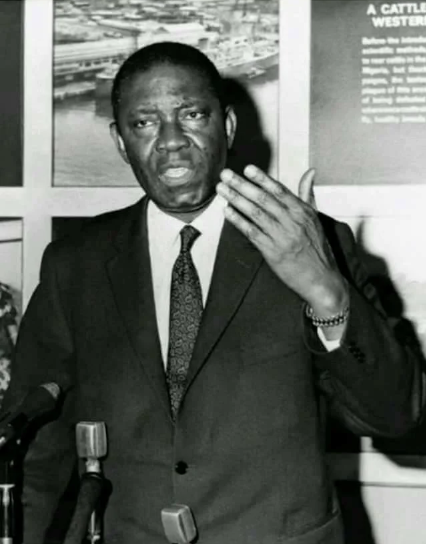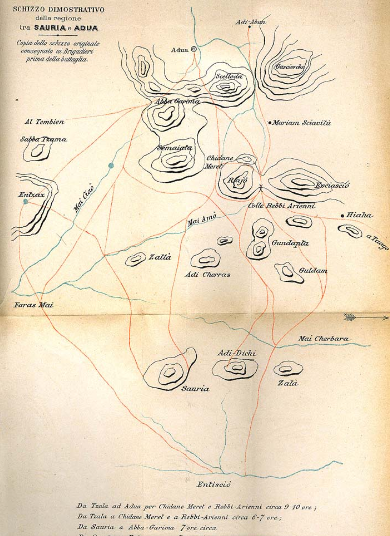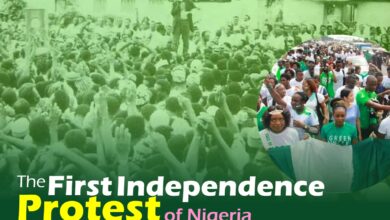The Battle of Adwa: Inspiration for Nigeria’s Independence all the way from Ethiopia
Key figures in Nigeria's fight for independence pre-1960 drew inspiration from Ethiopia's success and were motivated to pursue their own nation's freedom.

On October 1, 1960, Nigeria celebrated its independence from British colonial rule, marking the culmination of decades of nationalist efforts towards self-determination. The roots of this struggle can be traced back to various influences, one of the most significant being the Battle of Adwa on March 1, 1896.
This historic battle, where Ethiopian forces led by Emperor Menelik II defeated the Italian army, was a powerful symbol of resistance and empowerment for African nations, including Nigeria. So, how did the most remarkable example of African resilience find its root?
With the Battle of Adwa, a landmark event in African history, it was the first time an African nation successfully repelled a European colonial power during this expansionist era. The Ethiopian victory was a military triumph and a profound statement against the prevailing notion of European superiority. It demonstrated that African forces could defend their sovereignty and resist European domination
This victory resonated deeply across the continent, inspiring many African nationalists and leaders. For Nigeria, the Battle of Adwa became a beacon of hope and a source of inspiration. It showed that colonial powers were not invincible and that with unity and determination, independence was achievable.
![Menelik II at the Battle of Adwa. [Wikipedia]](http://meiza.ng/wp-content/uploads/2024/09/Battle-1.png)
Birthing Nigerian nationalist movement
The Nigerian nationalist movement was a complex and multifaceted struggle that involved various leaders, organisations, and strategies. The influence of the Battle of Adwa was evident in the spirit of resistance and determination that characterised the movement.
Key figures in Nigeria’s fight for independence drew inspiration from Ethiopia’s success and were motivated to pursue their own nation’s freedom.
Among the prominent Nigerian nationalists were:
1. Nnamdi Azikiwe: Often referred to as the father of Nigerian nationalism, Azikiwe was a leading figure in the struggle for independence. He founded the National Council of Nigeria and the Cameroons (NCNC) and played a crucial role in mobilising support for self-governance.
2. Obafemi Awolowo: A key leader in the Western Region, Awolowo was instrumental in the formation of the Action Group (AG) party. He advocated for federalism and regional autonomy, which were vital in the push for independence.
3. Ahmadu Bello: The Sardauna of Sokoto and leader of the Northern People’s Congress (NPC), Bello was a significant figure in the Northern Region. His leadership helped to unify the diverse ethnic groups in the north and contributed to the overall nationalist movement.
4. Herbert Macaulay: Also seen as a patriarch of Nigerian nationalism, Macaulay was an early advocate for Nigerian self-rule. He founded the Nigerian National Democratic Party (NNDP) and laid the groundwork for future nationalist activities.
A clear path to Independence is now forged
The influence of the Battle of Adwa on Nigerian nationalists was profound. It instilled a sense of pride and possibility, encouraging them to fight for their independence. The nationalist movement in Nigeria gained momentum in the 1940s and 1950s, with increased political activism, labour strikes, and demands for constitutional reforms.
Soon, the post-World War II era saw significant changes in the global political landscape, with many colonies pushing for independence.

In Nigeria, the nationalist movement led to a series of constitutional reforms that gradually increased Nigerian self-governance. By 1954, the Western and Eastern regions had achieved internal self-governance, followed by the Northern region in 1959.
Finally, on October 1, 1960, Nigeria declared its independence from British rule, marking the end of colonial domination and the beginning of a new era of self-determination and sovereignty.
Lasting impression made
The Battle of Adwa was more than just a military victory; it was a symbol of African resilience and a source of inspiration for nationalist movements across the continent.

For Nigeria, the battle’s legacy played a crucial role in shaping the nationalist movement and ultimately achieving independence from British colonial rule.
The efforts of Nigerian nationalists, inspired by Ethiopia’s triumph, paved the way for a free and sovereign Nigeria although the latter, scarred by several military takeovers and a 30-month-long civil war, finds itself struggling for clarity 64 years after independence from Britain.
ALSO READ: Finding the true Nigerian through our destination quiz






![Naturally, retail buyers and Nigerians in general want to be able to enjoy the benefit of having the largest single-train refinery in the world stationed in their country but analysts know that the Dangote oil refinery will be out to make returns from its investment. [Dangote Industries Limited]](http://meiza.ng/wp-content/uploads/2024/09/Dangote-Refinery-Open-View-e1725298024213-390x220.jpg)
